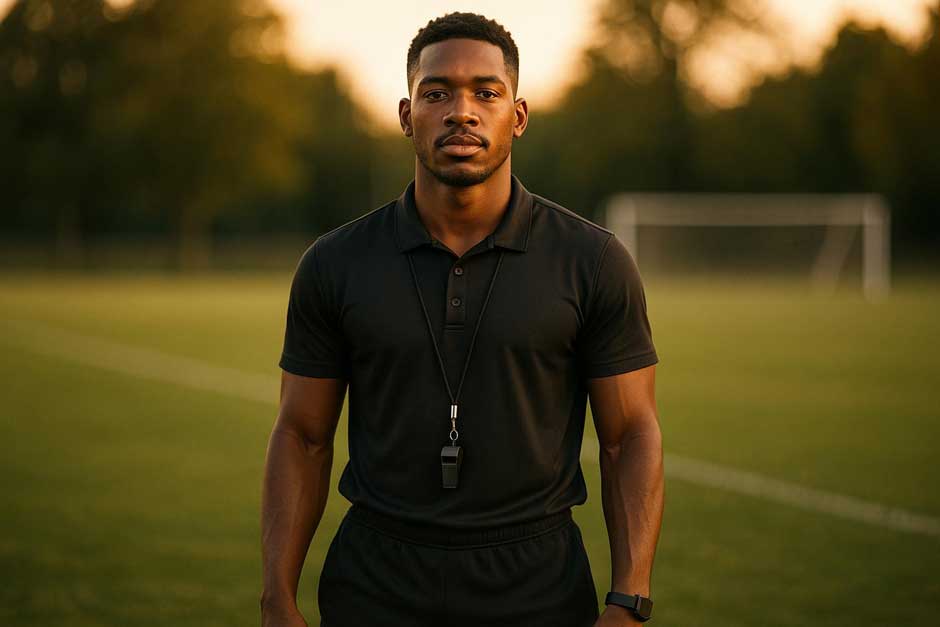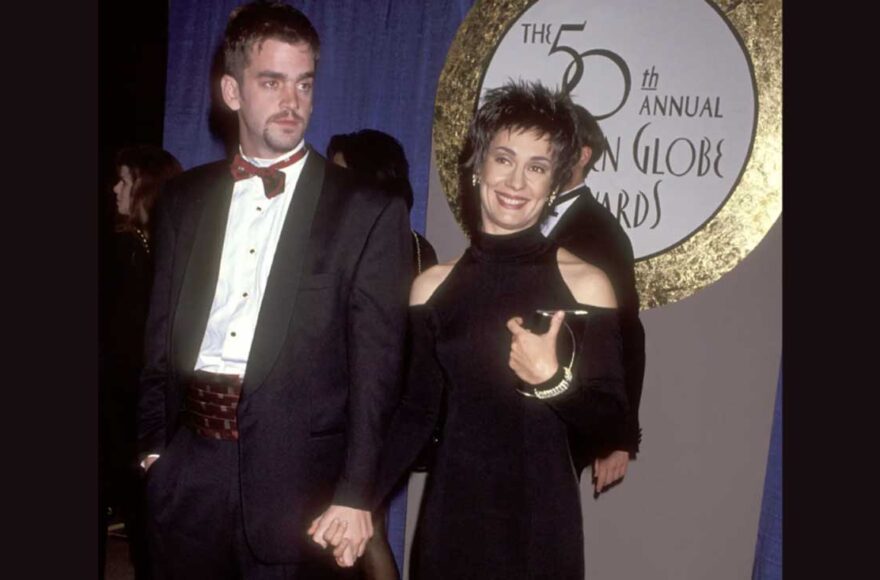John James Roundtree: From Actor’s Son to Soccer Coach Star – The Athletic Journey of Richard Roundtree’s Talented Son

Some people are born into fame, but choose to write their own story. John James Roundtree—better known as Jay to those who know him—is one of those people. His father Richard Roundtree made history as the iconic detective John Shaft in the 1971 film that changed Hollywood forever. But Jay? He’s been busy making his own mark on soccer fields across California.
The path from Hollywood royalty to soccer coaching might seem unexpected, but it makes perfect sense when you meet Jay. He’s traded red carpets for grass fields, and the spotlight for the sidelines. His story proves that sometimes the best way to honor your family’s legacy is by creating your own.
Early Life and Family Legacy
Born November 3, 1998, in Los Angeles, Jay entered a world where his father was already a legend. Richard Roundtree had broken barriers as the first Black action hero, revolutionizing cinema with his portrayal of John Shaft. But fame wasn’t going to define this family’s story.
When Jay was three, the Roundtrees made a smart move. They left the chaos of LA for Grass Valley, California—a decision that would shape Jay’s entire future. Away from Hollywood’s glare, he could just be a kid figuring out what he loved.
The Roundtree home buzzed with different dreams and ambitions. Jay’s sister Tayler found her passion with horses and now runs an equestrian center in Auburn. Morgan took her talents international, studying business in London. Their mother Karen made sure each kid knew they could chase whatever made them happy.
Richard Roundtree continued acting throughout Jay’s childhood, but he never pushed his kids toward entertainment. Instead, he showed them what dedication looked like. Work hard, stay professional, and most importantly—find your own path. That lesson stuck with Jay more than any Hollywood connection ever could.
High School Athletic Excellence
Jay’s athletic gifts started showing up early in high school. At Bear River High School, he discovered something special about standing between those goalposts. His reflexes were lightning-quick, his mind sharp under pressure. By freshman year, he was already earning all-league honors.
But Jay wanted more. He transferred to Jesuit High School, known for pushing students both academically and athletically. The move paid off immediately. Once again, he dominated as a goalkeeper, earning all-league recognition and catching the eye of college scouts.
The real breakthrough came at elite soccer camps. Two years running, Jay snagged the Golden Glove award at both the Cal Berkeley ID Camp and the Olympic Development Program regional camp. These weren’t participation trophies—they marked him as one of the top young goalkeepers in the country.
College recruiters started calling. Jay’s combination of athletic talent and academic excellence at Jesuit made him exactly the kind of student-athlete top programs wanted. His coaches raved about his work ethic and leadership, qualities that went far beyond his skills in goal.
Club Soccer Development and Academy Experience
High school soccer was just the beginning. Jay spent three crucial years with Placer United Football Club, moving through their U-14, U-15, and U-16 teams. This wasn’t weekend recreation—it was serious development against the best young players in Northern California.
Goalkeeping demands something different from other positions. You’re alone back there, facing intense pressure, needing perfect focus for 90 minutes. Jay thrived in that environment, developing the mental toughness that would define his career.
His talent eventually earned him a spot with the San Jose Earthquakes Academy—the big leagues of youth soccer. This was Major League Soccer’s development system, where future pros learned their trade. Jay trained with both U-16 and U-18 teams, often facing older, stronger players who pushed him to new levels.
Under coach Henry Foulk’s guidance, Jay mastered the technical aspects of goalkeeping. Positioning, distribution, game management—all the details that separate good keepers from great ones. This professional-level instruction would serve him well both as a player and later as a coach.
University of San Francisco Soccer Career
In 2016, Jay took his 6-foot frame and sharp reflexes to the University of San Francisco. Joining the Dons men’s soccer program represented years of hard work paying off. But college soccer brought new challenges—balancing athletics with academics while competing at the highest amateur level.
Jay’s freshman year was a redshirt season, giving him time to adjust to college life and develop his game without using eligibility. Smart move. He used that year to dive into his psychology studies, already thinking about how the mind affects athletic performance.
Playing time proved limited during his college career. Jay appeared in just one game during 2019, recording two saves in a clean sheet performance. Limited minutes can frustrate any athlete, but Jay used the experience differently. He became a mentor to younger players and studied the mental side of the game.
Graduating in 2020 with his psychology degree marked more than academic success. Jay had combined his athletic experience with formal education about human behavior and mental performance. That combination would become his secret weapon as a coach.
Transition from Player to Coach
Even before finishing college, Jay was already sharing his knowledge. During the 2012-2013 school year, he returned to Bear River High School as the varsity girls soccer goalkeeper coach. Talk about coming full circle.
Working with high school athletes revealed Jay’s natural teaching ability. He could break down complex techniques into simple, understandable concepts. His recent playing experience made him relatable, while his technical knowledge earned respect from players and parents alike.
Something clicked during those early coaching experiences. Jay discovered he loved developing young athletes even more than competing himself. Watching a player master a new skill or overcome a mental barrier gave him satisfaction that playing never quite matched.
His coaching approach emphasized both technical skills and mental preparation. Jay understood that goalkeeping was as much psychological as physical. He worked to build confidence and resilience in his players, drawing from his own experiences facing pressure situations.
Professional Coaching Career Development
By 2017, Jay had established himself as a personal soccer coach, working one-on-one with players seeking specialized training. This individualized approach let him tailor instruction to each athlete’s specific needs and goals.
From 2018 to 2021, he coached with FC Royale, taking on responsibilities that went far beyond field instruction. Jay planned training sessions, organized matches, and coordinated team-building events. He was learning the business side of soccer while honing his coaching craft.
Summer camps became another avenue for Jay’s development. He worked with both the Eddie Sotto Summer Soccer Camp and FC Royale’s summer program from 2017 to 2019. These intensive programs taught him to manage large groups while maintaining individual attention—a skill that would prove invaluable later.
The summer camp experience was particularly rewarding. Working with kids of all skill levels required creativity and adaptability. Jay learned to create engaging environments that kept young athletes motivated while actually improving their games.
Word spread throughout Northern California’s soccer community. Jay was building a reputation as someone who combined technical expertise with genuine care for player development. Coaches, parents, and players all spoke highly of his instruction and mentorship.
Current Role at San Francisco State University
In 2023, Jay reached a career milestone by joining San Francisco State University as their Goalkeepers Coach. After more than a decade of coaching experience, he was ready for the college level. The university’s confidence in hiring him spoke volumes about his reputation and abilities.
College coaching presents unique challenges. Student-athletes must balance demanding academic schedules with intensive training and competition. Jay’s own college experience gives him valuable perspective in helping players navigate these pressures.
His role extends far beyond technical instruction. Jay handles mental preparation, game strategy, and individual development planning for each goalkeeper. He works closely with the head coaching staff to integrate goalkeeper training with overall team tactics.
The university setting also allows Jay to apply his psychology background practically. He addresses the mental aspects of goalkeeping, helping players develop confidence, focus, and resilience. This holistic approach sets him apart and adds real value to the program.
San Francisco State represents more than just a job for Jay. It’s a platform for continued learning and professional development, with opportunities for ongoing education and collaboration with other sports science professionals.
Personal Philosophy and Future Goals
Jay’s coaching philosophy reflects his deep understanding of both technical and psychological aspects of athletic performance. His psychology education, combined with extensive playing and coaching experience, has shaped an approach that emphasizes complete player development.
His ultimate goal? Becoming a sports psychologist. It’s the natural evolution of his interests and experiences. The combination of practical coaching knowledge and academic psychology training positions him uniquely to help athletes overcome mental barriers and achieve peak performance.
Growing up as Richard Roundtree’s son taught Jay valuable lessons about dedication and professionalism, but he’s created his own identity in soccer. His success demonstrates that authentic passion and hard work matter more than famous connections.
Through his work with Golden Glove Academy and other organizations, Jay continues expanding his impact on youth soccer development. He’s not just teaching technical skills—he’s helping young athletes develop confidence, discipline, and goal-setting abilities that serve them throughout life.
Looking ahead, Jay envisions combining his coaching expertise with formal sports psychology practice. This integration would allow him to serve athletes at all levels, from youth players learning fundamentals to elite competitors seeking mental performance enhancement.
The journey from Hollywood royalty to respected soccer coach proves that success comes from following your authentic interests and developing expertise through dedicated effort. Jay Roundtree has created his own legacy in sports, showing that the best way to honor your family’s achievements is by pursuing your own dreams with passion and purpose.


